 Dhruv Rathee, a popular YouTuber, has recently tweeted that he would release a video to discuss how an online betting app has become the main sponsor of the Indian cricket team. His tweet attracted the attention of many sports fans who were eager to hear his opinion on the matter. The YouTuber’s tweet has been provoked by the recently signed sponsorship deal between Dream 11 and the country’s national cricket team.
Dhruv Rathee, a popular YouTuber, has recently tweeted that he would release a video to discuss how an online betting app has become the main sponsor of the Indian cricket team. His tweet attracted the attention of many sports fans who were eager to hear his opinion on the matter. The YouTuber’s tweet has been provoked by the recently signed sponsorship deal between Dream 11 and the country’s national cricket team.
The YouTuber has decided to use psychological tactics instead of directly discussing fantasy sports platforms. Rathee’s tweet reveals that he considers fantasy sports a form of gambling. The YouTuber went even further by calling these gambling apps “trashy”. His tweet suggests that online betting apps are sponsors of the Indian Premier League teams and they would advertise their gambling services during cricket events.
An online betting app will now be the main sponsor of Indian Cricket Team.
My next video will be about such trashy apps.
— Dhruv Rathee (@dhruv_rathee) July 1, 2023
The YouTuber, however, has presented things in a very subjective way. According to him, online betting apps will sponsor the national cricket team. However, India’s cricket team has signed a sponsorship deal with the fantasy sports platform Dream 11. In India, fantasy sports are legal because they are considered games of skills.
All luck-based games, however, are illegal, and advertising illegal gambling activities is punishable. Besides, the YouTuber did not mention the names of the betting apps operating against the law. Rathee pointed out that he did not specify the names of the apps because of possible copyright claims.
Fantasy Sports are Legal in India Because They are Seen as Skill-Based Games
Before selecting the sponsor for India’s cricket team, the Board of Control for Cricket in India (BCCI) had explained that companies offering real-money gambling would not be allowed to participate in the bidding process. An undeniable fact, however, is that numerous illegal offshore betting apps have emerged on the Indian market and are promoting themselves through celebrities and surrogate brands.
But the BCCI made the right decision in selecting Dream 11 as the main jersey sponsor for the Indian cricket team because the app was declared legal by the Supreme Court. Besides, fantasy sports apps have been determined to be games of skill by various high courts. Lumping online gambling apps and fantasy sports platforms together is simply wrong and misleading.
On Saturday, the BCCI announced that it signed a three-year deal with Dream 11, under which the fantasy sports platform would be the new sponsor for the India cricket team, replacing the ed-tech platform Byju’s. The BCCI unveiled that the Dream 11 logo would appear on cricket players’ kits for the first time during the West Indies vs. India Head-to-Head Test matches, scheduled to kick off on July 12 in the Caribbean.
 On Friday, Ohio lawmakers voted in favor of a proposal to increase the sports betting tax rate to 20%. The move aims to boost Ohio’s sports betting tax revenue by $100 million to $315 million annually. Of that revenue, 98% would go to sports educational programs, while the remaining 2% would be directed to the Problem Sports Gaming Fund. The tax increase was included in the state’s $85.8-billion budget for fiscal year 2024-2025.
On Friday, Ohio lawmakers voted in favor of a proposal to increase the sports betting tax rate to 20%. The move aims to boost Ohio’s sports betting tax revenue by $100 million to $315 million annually. Of that revenue, 98% would go to sports educational programs, while the remaining 2% would be directed to the Problem Sports Gaming Fund. The tax increase was included in the state’s $85.8-billion budget for fiscal year 2024-2025.  After postponing the implementation of a gambling advertising ban several times, the rule prohibiting most forms of gambling commercials finally became effective on July 1. Under the new rules, radio and television commercials, as well as gambling adverts in public spaces, such as billboards, bus stations, cafes, and inside gaming venues, are prohibited. The ban also extends to print adverts.
After postponing the implementation of a gambling advertising ban several times, the rule prohibiting most forms of gambling commercials finally became effective on July 1. Under the new rules, radio and television commercials, as well as gambling adverts in public spaces, such as billboards, bus stations, cafes, and inside gaming venues, are prohibited. The ban also extends to print adverts. 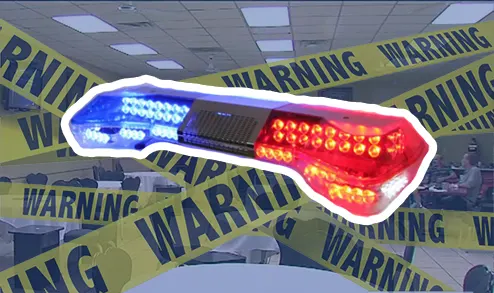 Code enforcement officers forced a Middle Eastern restaurant in Sterling Heights to cease operations after it allegedly organized various illegal gambling activities for its visitors, which violated its agreement with the city. This is not the first time the venue was ordered to cease operations because it purportedly offered illegal gambling.
Code enforcement officers forced a Middle Eastern restaurant in Sterling Heights to cease operations after it allegedly organized various illegal gambling activities for its visitors, which violated its agreement with the city. This is not the first time the venue was ordered to cease operations because it purportedly offered illegal gambling.  As of July, Hungarian banks will restrict all payments to offshore gambling and sports betting sites in a bid to crack down on illegal gambling. The Authority for the Supervision of Regulated Activities (SZTFH) has joined forces with Hungarian banks, which agreed to stop processing gambling transactions to unlicensed casinos and sportsbooks. Hungarians who use the services of illegal gambling sites will no longer be able to use their credit cards to fund their accounts and withdraw their profits, as implied in the authority’s statement.
As of July, Hungarian banks will restrict all payments to offshore gambling and sports betting sites in a bid to crack down on illegal gambling. The Authority for the Supervision of Regulated Activities (SZTFH) has joined forces with Hungarian banks, which agreed to stop processing gambling transactions to unlicensed casinos and sportsbooks. Hungarians who use the services of illegal gambling sites will no longer be able to use their credit cards to fund their accounts and withdraw their profits, as implied in the authority’s statement. 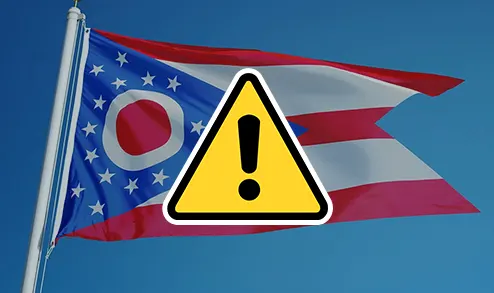 On Wednesday, the Ohio Casino Control Commission (OCCC) sent a letter to all sportsbook operators, announcing that they must stop all promotions aimed at retail customers by 5 pm on July 7. The regulator explained that providing sports betting rewards to people making non-gaming purchases significantly increases the risk of problem gambling among young people. The move comes shortly after Fanatics was ordered to stop offering sports betting promotions to merchandise buyers due to rising responsible gambling concerns.
On Wednesday, the Ohio Casino Control Commission (OCCC) sent a letter to all sportsbook operators, announcing that they must stop all promotions aimed at retail customers by 5 pm on July 7. The regulator explained that providing sports betting rewards to people making non-gaming purchases significantly increases the risk of problem gambling among young people. The move comes shortly after Fanatics was ordered to stop offering sports betting promotions to merchandise buyers due to rising responsible gambling concerns. 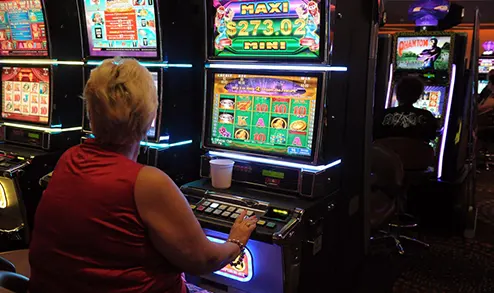 Earlier this week, Senate Bill 120 became law after New Hampshire’s Governor Chris Sununu signed the legislation, which aims to protect and maximize charitable gaming revenue. Under the new rules, charitable casinos can offer a maximum bet limit of $50 instead of $10, while buy-on and re-buy limits on tournaments will go from $150 and $250 to $2,500. Table stake limits also climb from $150 to $2,500. The changes will become effective as of July 1.
Earlier this week, Senate Bill 120 became law after New Hampshire’s Governor Chris Sununu signed the legislation, which aims to protect and maximize charitable gaming revenue. Under the new rules, charitable casinos can offer a maximum bet limit of $50 instead of $10, while buy-on and re-buy limits on tournaments will go from $150 and $250 to $2,500. Table stake limits also climb from $150 to $2,500. The changes will become effective as of July 1. 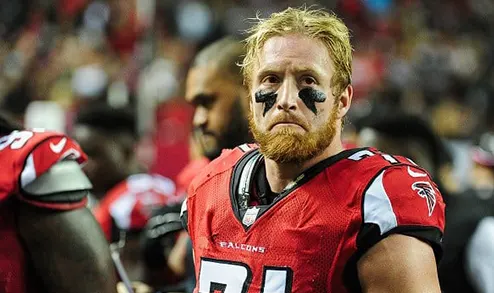 Kroy Biermann, former American football outside linebacker, has been sued over alleged casino debt of $52k, which he did not pay back. He reportedly accrued the gambling credit at the Baha Mar Casino in the Bahamas. According to a new lawsuit filed by Sky Warrior, the company that handles the credit lines at the Baha Mar Casino, Biermann took a $100k line of credit before a trip in November 2021 and never paid it back.
Kroy Biermann, former American football outside linebacker, has been sued over alleged casino debt of $52k, which he did not pay back. He reportedly accrued the gambling credit at the Baha Mar Casino in the Bahamas. According to a new lawsuit filed by Sky Warrior, the company that handles the credit lines at the Baha Mar Casino, Biermann took a $100k line of credit before a trip in November 2021 and never paid it back.  Royal Caribbean International, which owns six of the world’s biggest cruise ships (also known as the Oasis-class vessels), has converted the jazz clubs aboard into smoke-free casinos with the help of the interior design agency Trimline while the ships were in service. Currently, three of the company’s cruise ships offer non-smoking gambling areas instead of jazz clubs aboard, including Harmony of the Seas, Oasis of the Seas, and Allure of the Seas.
Royal Caribbean International, which owns six of the world’s biggest cruise ships (also known as the Oasis-class vessels), has converted the jazz clubs aboard into smoke-free casinos with the help of the interior design agency Trimline while the ships were in service. Currently, three of the company’s cruise ships offer non-smoking gambling areas instead of jazz clubs aboard, including Harmony of the Seas, Oasis of the Seas, and Allure of the Seas.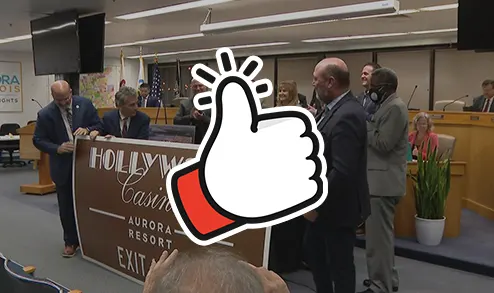 Yesterday, the Aurora City Council held a meeting and approved Penn Entertainment’s plans to relocate Hollywood Casino Aurora from Fox River to a high-traffic area near I-88 and Farnsworth Avenue, across from the Chicago Premium Outlets mall. The operator’s plan passed on a 10-1 vote, with John Laesch being the only one to vote against the proposal.
Yesterday, the Aurora City Council held a meeting and approved Penn Entertainment’s plans to relocate Hollywood Casino Aurora from Fox River to a high-traffic area near I-88 and Farnsworth Avenue, across from the Chicago Premium Outlets mall. The operator’s plan passed on a 10-1 vote, with John Laesch being the only one to vote against the proposal.